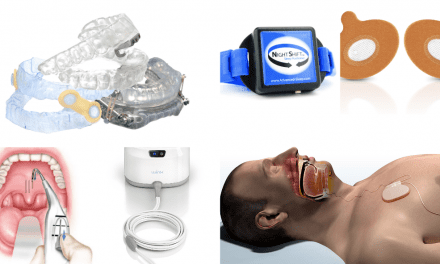The American Journal of Rhinology & Allergy has published positive one-year results from a trial evaluating the safety and efficacy of Aerin Medical Inc’s RhinAer in patients with chronic rhinitis. RhinAer is a temperature-controlled, radiofrequency technology used to disrupt nerve signals that cause chronic rhinitis symptoms. Following a single treatment with RhinAer, symptom severity significantly decreased in the first two weeks and remained low through the one-year follow-up.
“The outcomes of this study demonstrate the robust and durable benefits of RhinAer, and they reinforce the effectiveness of targeting the posterior nasal nerve area with temperature-controlled radiofrequency to treat chronic rhinitis,” says V. Vasu Kakarlapudi, MD, MBA, of Advanced ENT and Allergy in Louisville, Ky, and principal investigator of the study, in a release. “RhinAer offers patients a lasting, noninvasive option to effectively treat their condition without complex surgery.”
The prospective, single-arm, multi-center study enrolled 50 adult patients with moderate to severe rhinitis symptoms based on the 4-point reflective Total Nasal Symptoms Survey (rTNSS), which rates symptoms including runny nose, congestion, itching, and sneezing. Patients were monitored at 2, 4, 12, 26, and 52 weeks following treatment with RhinAer and completed a satisfaction questionnaire.
[RELATED: 5 Reasons to Screen and Treat OSA Patients for Rhinitis]
The study met its primary endpoint, demonstrating that patients who were treated with RhinAer experienced clinically significant reductions in chronic rhinitis symptoms three months following treatment, with lasting symptom improvements out to one year. Findings included:
Mean rTNSS scores improved from 8.5 at baseline to 3.6, a 57.6% improvement (p<0.001). Similar outcomes were achieved with rTNSS subscores (runny nose, nasal congestion, itching, and sneezing), postnasal drip, and chronic cough scores.
80.9% of patients experienced symptom improvement of at least 30% relative to baseline at one year.
100% of patients experienced at least one rTNSS point improvement relative to baseline, showing that all patients experienced some measurable symptom relief.
Treatment was well-tolerated, with no serious device- or procedure-related adverse events occurring. The authors noted that no device- or procedure-related headaches were reported throughout the trial. Subgroup analysis data also showed that RhinAer was effective in providing symptom relief to patients who presented with allergic as well as nonallergic rhinitis.
“Historically, options have been limited for the large percentage of chronic rhinitis patients unresponsive to medication,” says Matt Brokaw, CEO of Aerin Medical, in a release. “RhinAer provides otolaryngologists an effective, non-invasive solution for appropriately selected chronic rhinitis patients who have been challenging to treat, and fits seamlessly into any practice setting.”





